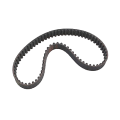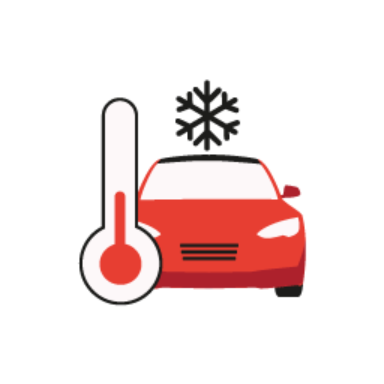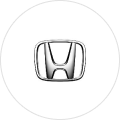Financing all Credit Types - 
Financing all Credit Types - 
Financing all Credit Types - 
Financing all Credit Types - 
The harmonic balancer, also referred to as a vibration damper, is an essential engine component designed to reduce and control vibrations generated by the crankshaft. It is mounted at the front of the engine and directly connected to the crankshaft. Its primary function is to absorb and dissipate the rotational forces and vibrations produced by the engine's operation, ensuring smoother and more efficient performance.
The harmonic balancer is crucial in maintaining the health and longevity of the engine. Without it, the crankshaft could experience excessive stress and vibration, leading to premature wear, cracking, or failure of critical engine parts. By balancing out these forces, it not only prevents excessive wear and tear on the crankshaft but also reduces strain on other components, such as the bearings and timing belt or chain.
Structurally, the harmonic balancer is composed of a metal hub connected to the crankshaft, a rubber ring or elastomer for dampening vibrations, and an outer metal ring that provides additional mass. This combination allows it to counteract and neutralize torsional (twisting) vibrations effectively.
When the harmonic balancer starts to fail, you may notice:
Excessive Vibrations: You may feel a significant increase in vibrations when the engine is running, particularly during acceleration or at specific RPM ranges. This can make the driving experience rough and uncomfortable. Prolonged vibrations can lead to wear and tear on engine mounts, contributing to further damage over time.
Damage to Engine Components: A failing harmonic balancer doesn’t just affect itself—it can lead to damage to nearby components. A damaged balancer can cause harm to other parts of your engine, such as belts, the crankshaft, or timing.
Unusual Noises: A failing harmonic balancer can produce knocking, rattling, or clunking noises. These sounds often originate from the front of the engine and may become more pronounced as the balancer deteriorates. This happens because the rubber or other damping material within the balancer may begin to degrade, causing the outer ring to loosen and move erratically.
Driving with a bad harmonic balancer not only jeopardizes your safety but also risks further damage to critical engine components. Addressing the issue early can save you significant time and money while ensuring your vehicle operates safely and reliably.
If you suspect a problem with your harmonic balancer, have it inspected and replaced by a professional mechanic as soon as possible to prevent these risks.
If a failing harmonic balancer is left unaddressed, it can lead to significant and costly issues, including:
Weakened and Failing Engine Components: The harmonic balancer minimizes vibrations in the crankshaft, and without it, the increased stress can weaken critical parts like the crankshaft, bearings, and pulleys. Over time, these components may crack, warp, or completely fail, compounding the damage.
Severe Engine Damage: Prolonged use of a faulty harmonic balancer can lead to misalignment of the drive belts, damage to the timing system, and deterioration of nearby parts. These cascading failures often result in extensive engine repairs or even a full engine replacement, which is far more expensive than replacing the balancer.
Dangerous Driving Conditions: A failing harmonic balancer increases the risk of catastrophic engine failure while driving. Essential systems, such as power steering or the cooling mechanism, could fail if belts snap or components detach. This could lead to overheating, loss of control, or even an accident.
No, you should never drive a car without a harmonic balancer. Without it, your engine is susceptible to severe vibration and damage, which can compromise the performance and longevity of your vehicle. Driving without a harmonic balancer severely impacts engine performance and longevity. It’s essential to address any issues with the balancer promptly to ensure the safety, reliability, and durability of your vehicle.
Several factors can lead to a failing harmonic balancer:
Wear and Tear: The rubber component of the harmonic balancer gradually degrades with age and use, losing its ability to effectively dampen vibrations. This degradation typically occurs as the balancer experiences repeated exposure to high temperatures and engine stress.
Improper Installation: If the harmonic balancer is not installed correctly or if an incorrect balancer is used for your vehicle, it can lead to premature wear. An improperly installed balancer may not align properly with the crankshaft or the engine’s timing components, resulting in inefficiency and added strain on the engine.
Excessive Engine Stress: Engines that frequently operate at high RPMs, or those that have been modified to increase performance, place additional stress on the harmonic balancer. This increased strain can cause the balancer to wear out faster, leading to potential failure.
A harmonic balancer typically lasts between 70,000 and 100,000 miles under normal driving conditions. However, its lifespan can be influenced by factors such as the quality of the part, the engine's overall performance, and how much strain is placed on the engine. Engines that experience higher RPMs, heavy loads, or performance modifications may lead to a shorter lifespan for the harmonic balancer. Regular maintenance and timely replacement can help ensure the longevity of both the balancer and the engine components it protects.
A failing harmonic balancer often produces rattling, knocking, or squealing sounds from the front of the engine. These noises are typically caused by the deterioration or separation of the balancer’s rubber component. As the rubber breaks down, it can lead to looseness in the pulleys, which then generates the unwanted sounds. If you notice these symptoms, it's essential to have the balancer checked promptly to avoid further engine damage.
Instant Car Fix can assist with harmonic balancer issues by providing convenient, mobile mechanic services right at your location. Our certified mechanics can perform:
Diagnostic Services: We’ll inspect your vehicle and determine if the harmonic balancer is the cause of the issues, such as vibration, noise, or engine stress.
Harmonic Balancer Replacement: If a replacement is needed, our mechanics can replace the balancer efficiently, ensuring your engine operates smoothly again.
Prevention & Maintenance: We help identify signs of wear or damage early, preventing the potential for severe engine damage down the road.
Mobile Service: No need to drive your vehicle to a shop. Our technicians come to your home, office, or any convenient location, saving you time and hassle.
With transparent pricing and fast, reliable service, Instant Car Fix is here to keep your engine running in top condition, without the need for an expensive trip to the repair shop.





















